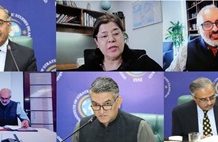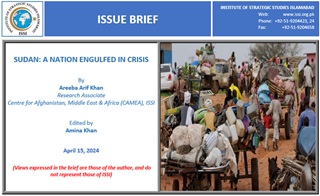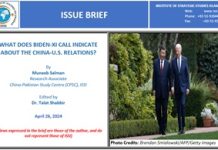In April 2023 violence broke out between the Sudanese Armed Forces (SAF) led by General Abdel Fattah al-Burhan and the country’s military and a paramilitary organisation known as the Rapid Support Forces (RSF) led by General Mohamed Hamdan Dagalo, commonly known as Hemedti. The warring parties were previously allies in 2019 and worked together to topple the regime of Omar al-Bashir, who ruled for three decades. He was replaced by SAF’s leader, General Abdel Fattah al-Burhan as de facto head of state.[1] Later on, in a power-sharing agreement between civilian and military leaders, a transitional government was formed in August 2019, led by Prime Minister Abdalla Hamdok and General Abdel Fattah al-Burhan as the head of the Transitional Military Council (TMC).
However, in October 2021, the Sudanese military, led by General Abdel Fattah al-Burhan and supported by Hemdeti, staged a coup, dissolved the transitional government and detained civilian leaders, including Prime Minister Abdalla Hamdok. This move prompted widespread protests and international condemnation.[2] As a result, a deal was announced for the reinstatement of Hamdok as Prime Minister in November 2021 for a technocratic cabinet operating independently but under military supervision. The pro-democracy movement in Sudan rejected the agreement, insisting that authority be transferred to a completely civilian government. In January 2022 PM Abdalla Hamdok resigned stating that “ despite all that was done to bring about the desired and necessary agreement to fulfil our promise to the citizen of security, peace, justice and an end to the bloodshed, this did not happen”.















